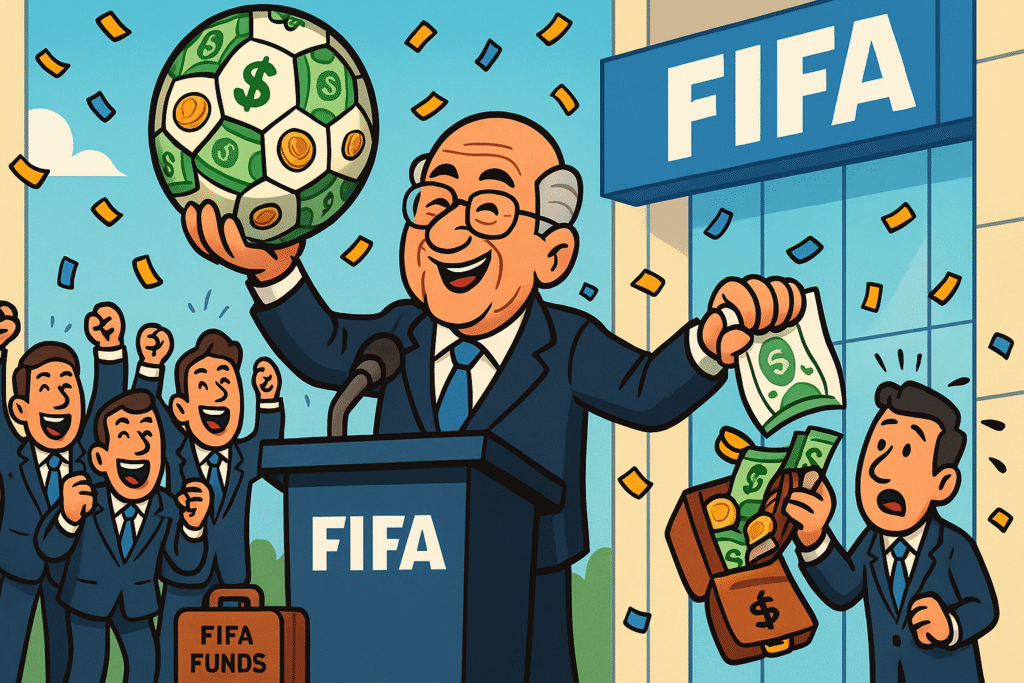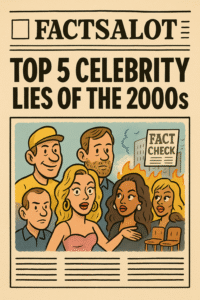FIFA Corruption Denials: From Assurances to Indictments

For decades, FIFA Corruption Denials rang out in press conferences, ethics-committee communiqués, and glossy annual reports. Senior officials insisted—sometimes pounding podiums—that World Cup host selections were guided solely by “the best technical bids,” not by envelopes thick with cash. Global audiences were assured that every vote was audited, every contract aboveboard, and that football’s governing body embodied the sport’s spirit of fair play. Meanwhile, investigative journalists, whistle-blowers, and government probes chronicled a steady drip of leaked emails, offshore wire transfers, and clandestine “consulting” agreements that pointed to a very different reality.
The dissonance grew louder after the controversial awards of the 2018 tournament to Russia and the 2022 edition to Qatar. Even then, officials doubled down on their FIFA Corruption Denials timeline, framing each allegation as sour grapes from losing bidders while commissioning internal reviews that rarely saw the light of day. Yet when the U.S. Department of Justice unsealed its sweeping indictments on May 27 2015—charging top executives with racketeering, wire fraud, and money laundering—the façade shattered in full view of the world’s media.
Those court documents, along with subsequent guilty pleas and extraditions, turned the phrase FIFA Corruption Denials aftermath into shorthand for a saga of corporate impunity finally meeting legal reckoning. Sponsors froze payments, television partners revised contracts, and reformists within FIFA pushed emergency statutes that promised term limits and independent oversight. Below, we chronicle the major denials, the evidence that unraveled them, and the sweeping legal fallout—tracing how decades of denial morphed into one of sport’s most consequential accountability drives.
Table of Contents
1. “No Votes Were Bought”

The Claim
FIFA leadership, led by President Sepp Blatter, insisted World Cup host selections were fair and aboveboard. Blatter repeatedly declared,
“No votes were bought or sold”
for the 2010 and 2018 bids.
The Reality
On May 27, 2015, U.S. prosecutors unsealed indictments charging nine FIFA officials and five corporate executives with racketeering conspiracy, wire fraud, and money laundering—all centered on tens of millions in bribes to influence both broadcast/sponsorship deals and World Cup votes (justice.gov).
Key Evidence
- DOJ Press Release: Detailed how executives accepted bribes in exchange for hosting rights and marketing contracts.
- Undercover Recordings & Wire Transfers: Revealed payments funneled through shell companies to FIFA committee members.
Aftermath
Investigations traced multiple bid-related payoffs—most notably a $10 million bribe from South Africa’s 2010 bid committee to CONCACAF official Jack Warner—confirming that votes had indeed been purchased (The Times).o.uk.
2. “We’re Investigating Ourselves”

The Claim
In response to bribery rumors, FIFA announced an Internal Ethics Committee, pledging to self-investigate any misconduct in the World Cup bidding processes.
The Reality
The probe, headed by German judge Hans-Joachim Eckert, released only a summary that exonerated Russia and Qatar—but withheld Michael Garcia’s full findings. In November 2014, FIFA even filed its own criminal complaint in Swiss courts, yet refused to make Garcia’s report public, prompting widespread allegations of a whitewash (The Guardian).
Key Evidence
- Leaked Redactions: Confidential drafts showed selective editing of Garcia’s 430-page report to omit damaging details about preferred bidders.
- Sponsor & Government Pressure: Sustained demands from member associations, corporate partners, and national governments forced FIFA to publish the full report in June 2017.
Aftermath
The credibility of FIFA’s ethics process collapsed. Several committee members resigned in protest, and the incident fueled calls—both inside and outside FIFA—for truly independent investigation bodies and external oversight of the organization.
3. “These Are Rogue Individuals”

The Claim
FIFA spokespeople downplayed the scandal as the misdeeds of a “few bad apples,” insisting the broader organization and its processes remained sound.
The Reality
U.S. and Swiss investigations exposed systemic bribery spanning FIFA’s continental bodies—CONMEBOL and CONCACAF—and marketing firms like Traffic Sports, proving widespread corruption rather than isolated incidents (Wikipedia).
Key Evidence
- Guilty Pleas: Media executives Alejandro Burzaco and José Hawilla admitted to coordinating bribe payments across multiple tournaments, implicating top officials.
- Confidential Informant: Former CONCACAF General Secretary Chuck Blazer pleaded guilty in 2013 and worked with the FBI, providing insider testimony that revealed long-standing corrupt networks.
Aftermath
FIFA suspended over 40 officials, including vice presidents Jeffrey Webb and Eduardo Li, and significantly reduced the autonomy of CONCACAF, ushering in leadership changes and stricter internal controls.s, including then-vice presidents Jeffrey Webb and Eduardo Li, and stripped CONCACAF of much of its autonomy.
4. “Our Sponsors Will Never Leave”

The Claim
FIFA officials reassured sponsors—Coca-Cola, Visa, and others—that their partnerships were secure despite negative headlines.
The Reality
Several sponsors threatened to withdraw funding in 2015. After the indictments, Walt Disney and Visa publicly demanded governance reforms; Budweiser paused its sponsorship discussions until structural changes were guaranteed vanityfair.com.
Key Evidence
- Private letters from sponsors cited in media reports warned FIFA that contracts could be terminated.
- Financial disclosures showed sponsor payments dwindled in the fallout.
Aftermath
Commercial revenue dipped, putting additional pressure on FIFA’s cash flow and forcing accelerated governance reforms under new president Gianni Infantino.
5. “Reform Is Underway”

The Claim
In the wake of the scandal, Gianni Infantino—elected in February 2016—pledged sweeping reforms: term limits, independent ethics bodies, and transparent bidding.
The Reality
While some changes were enacted, critics argue many reforms remain on paper. Investigations continue into Infantino’s own tenure, and questions linger over the 2026 World Cup bidding process thetimes.co.uk.
Key Evidence
- Infantino’s reform proposals were documented in FIFA’s statutes but lacked robust enforcement mechanisms.
- Ongoing Swiss and U.S. probes suggest deeper issues persist.
Aftermath
FIFA faces a long road restoring trust. Its next World Cup host decisions will be scrutinized more heavily—by media, governments, and FIFA’s own revamped ethics committee.
Conclusion – FIFA Corruption Denials
FIFA’s repeated denials of corruption ultimately collided with incontrovertible evidence: indictments, guilty pleas, and leaked investigations have exposed a culture of bribery woven through its governance. While reforms have been announced, the legacy of “FIFA Gate” serves as a cautionary tale: without genuine transparency and accountability, even the most powerful organizations can be undone by their own deceptions.
FAQ
What triggered the FIFA corruption scandal?
In May 2015, the U.S. Department of Justice indicted nine FIFA officials and five corporate executives on racketeering, wire fraud, and money laundering charges related to bribery and vote-buying.
Did FIFA investigate itself?
Yes—FIFA established an internal ethics committee led by Judge Hans-Joachim Eckert. However, their summary cleared Russia and Qatar’s bids, and the full Garcia report was withheld until public pressure forced its release in 2017.
Was the corruption isolated to a few individuals?
No. U.S. and Swiss probes revealed systemic bribery across FIFA’s continental bodies (CONMEBOL, CONCACAF) and marketing partners, with guilty pleas from executives like Alejandro Burzaco and cooperation from whistle-blower Chuck Blazer.
How did sponsors react?
Major sponsors, including Coca-Cola, Visa, and Budweiser, threatened to withdraw support in 2015, demanding governance reforms—highlighting the scandal’s commercial fallout.
What reforms followed the scandal?
Under President Gianni Infantino, FIFA introduced term limits, enhanced ethics oversight, and greater transparency in bidding. While some changes were implemented, critics argue that enforcement remains uneven.
Have any FIFA officials been punished?
Yes. Over 40 officials were suspended or banned, top executives resigned, and several faced criminal prosecution and convictions in the U.S. and Switzerland.
Sources – FIFA Corruption Denials
- U.S. Department of Justice, FIFA Corruption Denials Nine FIFA Officials and Five Corporate Executives Indicted (May 27, 2015): https://www.justice.gov/opa/pr/nine-fifa-officials-and-five-corporate-executives-indicted-racketeering-conspiracy-and justice.gov
- “2015 FIFA Corruption Case,” FIFA Corruption Denials Wikipedia: https://en.wikipedia.org/wiki/2015_FIFA_corruption_case en.wikipedia.org
- The Times, “Fifa scandal ten years on: Hotel raid that exposed depth of crisis” (May 27, 2025): https://www.thetimes.co.uk/article/fifa-corruption-scandal-ten-years-on-martyn-ziegler-2lsm2bbp9 thetimes.co.uk
- The Guardian, “Fifa lodges criminal complaint with Swiss courts over World Cup bids” (Nov 18, 2014): https://www.theguardian.com/football/2014/nov/18/fifa-criminal-complaint-world-cup-bids theguardian.com
- Vanity Fair, “By the Numbers: The FIFA Corruption Charges” (May 2015): https://www.vanityfair.com/news/2015/05/fifa-corruption-charges-arrests vanityfair.com

